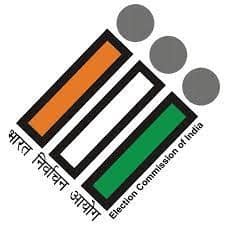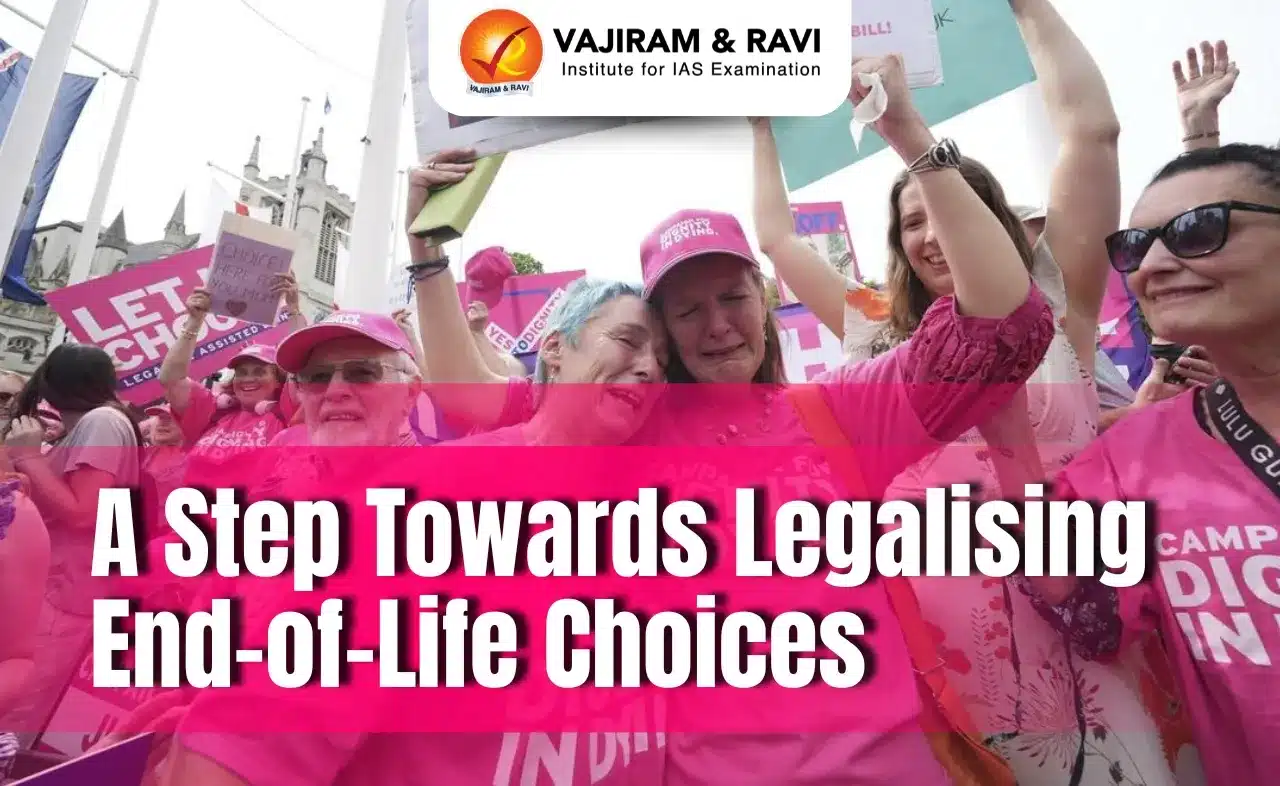What’s in today’s article?
- Why in News?
- Section 33(7) of the Representation of the People Act, 1951
- Constitutional Validity of Section 33(7)
- Advantages of Section 33(7) of RPA
- Disadvantages of Section 33(7) of RPA
- News Summary
- Supreme Court’s Judgement
- Central Government’s View
- Election Commission’s Suggestion
Why in News?
- The Supreme Court rejected a PIL seeking to restrict candidates from contesting elections for the same office simultaneously from more than one constituency.
- The Court said that the issue pertain to the legislative domain.
Section 33(7) of the Representation of the People Act, 1951
- Constitution allows the Parliament to make provisions in all matters relating to elections to the Parliament and State Legislatures.
- In accordance, the Parliament has enacted the following laws –
- Representation of the People Act 1950,
- Representation of the People Act 1951 and
- Delimitation Commission Act of 1952
- Representation of the People Act 1951 deals with the qualifications and disqualifications of people’s representatives.
- Section 33(7) of the Representation of People Act, 1951 allows a person to contest election for the same office from two constituencies at the same time.
- On the other hand, Section 70 bars candidates from representing two constituencies in the Lok Sabha/state.
- Prior to 1996, there was no bar on the number of constituencies one can contest from.
- The provision was then amended and a limit of two seats was set.
- When a candidate contests from two seats, he has to vacate one of the two if he wins both. Following this, by-elections are conducted for the vacant seat.
Constitutional Validity of Section 33(7) of RPA
- The constitutional validity of Section 33(7), Representation of People Act, 1951 has been upheld by the Allahabad High Court in Raja John Bunch v. Union of India (2014).
- The court observed that Article 101 of the Constitution does not contain any prohibition or restriction on a person contesting an election or filing a nomination from more than one constituency.
- Article 101 states that “No person shall be a member of both Houses of Parliament and provision shall be made by Parliament by law for the vacation by a person who is chosen a member of both Houses of his seat in one House or the other”.
- The court observed that there is nothing inconsistent between Section 33(7) and Article 101.
Advantages of Section 33(7) of RPA
- It is intended to strike a reasonable balance for candidates who wanted to contest in two constituencies and the rights of voters.
- The latent motive behind contesting from more than one constituency is two-fold.
- At times, it is because the candidate is not confident about his victory and sometimes, it is done to publicize the extent of one’s influence.
- A seat may fall vacant for a variety of reasons including, amongst them, the disqualifications which are contained in Article 102 of the Constitution.
- When a seat falls vacant, it has to be filled up in accordance with law.
Disadvantages of Section 33(7) of RPA
- Burden on Exchequer –
- This imposes a financial burden on the public exchequer, government manpower and other resources because by-elections have to be held in constituency that has been vacated.
- It leads to wastage of time and is against the spirit of the Constitution.
- Power being vested upon the people in power –
- Effective representation, being essential to a democratic system, the process of popular representation assumes importance.
- This is undermined by the system of multiple elections.
- A democratic government is one in which the supreme power is vested in the people and exercised by them directly or indirectly through a system of representation usually involving periodically held free elections.
- Here the supreme power is lost from the hands of people, rested in those who are in power. The valuable vote is entirely lost.
- Brings inequality amongst voters –
- The multiple-candidature is also discriminatory in nature as it provides a second chance to the voters of a constituency where the seat is vacated.
- Hence bringing in inequality amongst the voters in India.
- It is also against the idea of “fair elections”, as the economically weaker candidates, would not have enough to contest from multiple constituencies, and hence the wealthier candidate gets more chances of winning, resulting in an unfair election.
- Vacant constituency goes unrepresented –
- Because the candidate has to resign from one of the two seats and by-elections are to be held within the maximum period of 6 months (S. 151-A of the Representation of the People Act, 1951), the constituency may go unrepresented for the duration of those six months.
- This surely does not amount to effective representation and makes a mockery of the democratic process.
News Summary
- The Supreme Court has refused to set aside provision of allowing candidates to contest polls from two constituencies simultaneously.
- A petition was filed in the Supreme Court to declare Section 33(7) of the Representation of People Act 1951 invalid and ultra vires.
- The petitioner argued “like one-person-one-vote, one-candidate-one-constituency is the dictum of democracy… Section 33(7) of the RPA allows a person to contest a general election or a group of by-elections or biennial elections from two constituencies”.
Supreme Court’s Judgement
- The court chose to leave the issue to the wisdom of the Parliament.
- The court noted “This is a matter of legislative policy, since ultimately it is Parliament’s will to see if a country can be granted such a choice. Hence, absent any manifest arbitrariness in the said provision, we cannot strike it down”.
Central Government’s View
- In 2018, the central government had objected to the petition in court.
- It had argued that law cannot curtail the right of a candidate to contest elections and curtail the polity’s choice of candidates.
- The government had further told the Supreme Court that one-candidate-one-constituency restriction would require a legislative amendment. It had supported Section 33 (7).
Election Commission’s Suggestion
- The Election Commission had suggested to amend section 33(7) to restrict politicians to contest elections only from one seat.
- The commission alternatively suggested that in case the provision is not amended, then there should be an explicit provision making it mandatory for a person, contesting and winning from two seats to bear the cost of by-elections which will be held after he vacates his seat.
- Another idea which is perceived as a possible solution is that in case a candidate wins from both the seats, then instead of conducting by-elections, the candidate securing the second-highest vote should be announced as the winner.
- This will avoid wastage of hard-earned money of the public and reduce pressure on election machinery.
Q1) What is First Past the Post System?
The first-past-the-post (FPTP) system is also known as the simple majority system. In this voting method, the candidate with the highest number of votes in a constituency is declared the winner. This system is used in India in direct elections to the Lok Sabha and State Legislative Assemblies.
Q2) What does Losing Deposit in Election mean?
According to the Representation of People Act, 1951, it is mandatory for every candidate contesting a Parliamentary or Assembly election to deposit a certain security amount. Now, if the candidate gets fewer than one-sixth of the total number of valid votes cast in the constituency, his security deposit will be lost.
Source: No bar on contesting two seats in one poll | Livelaw
Last updated on June, 2025
→ UPSC Notification 2025 was released on 22nd January 2025.
→ UPSC Prelims Result 2025 is out now for the CSE held on 25 May 2025.
→ UPSC Prelims Question Paper 2025 and Unofficial Prelims Answer Key 2025 are available now.
→ UPSC Calendar 2026 is released on 15th May, 2025.
→ The UPSC Vacancy 2025 were released 1129, out of which 979 were for UPSC CSE and remaining 150 are for UPSC IFoS.
→ UPSC Mains 2025 will be conducted on 22nd August 2025.
→ UPSC Prelims 2026 will be conducted on 24th May, 2026 & UPSC Mains 2026 will be conducted on 21st August 2026.
→ The UPSC Selection Process is of 3 stages-Prelims, Mains and Interview.
→ UPSC Result 2024 is released with latest UPSC Marksheet 2024. Check Now!
→ UPSC Toppers List 2024 is released now. Shakti Dubey is UPSC AIR 1 2024 Topper.
→ Also check Best IAS Coaching in Delhi























